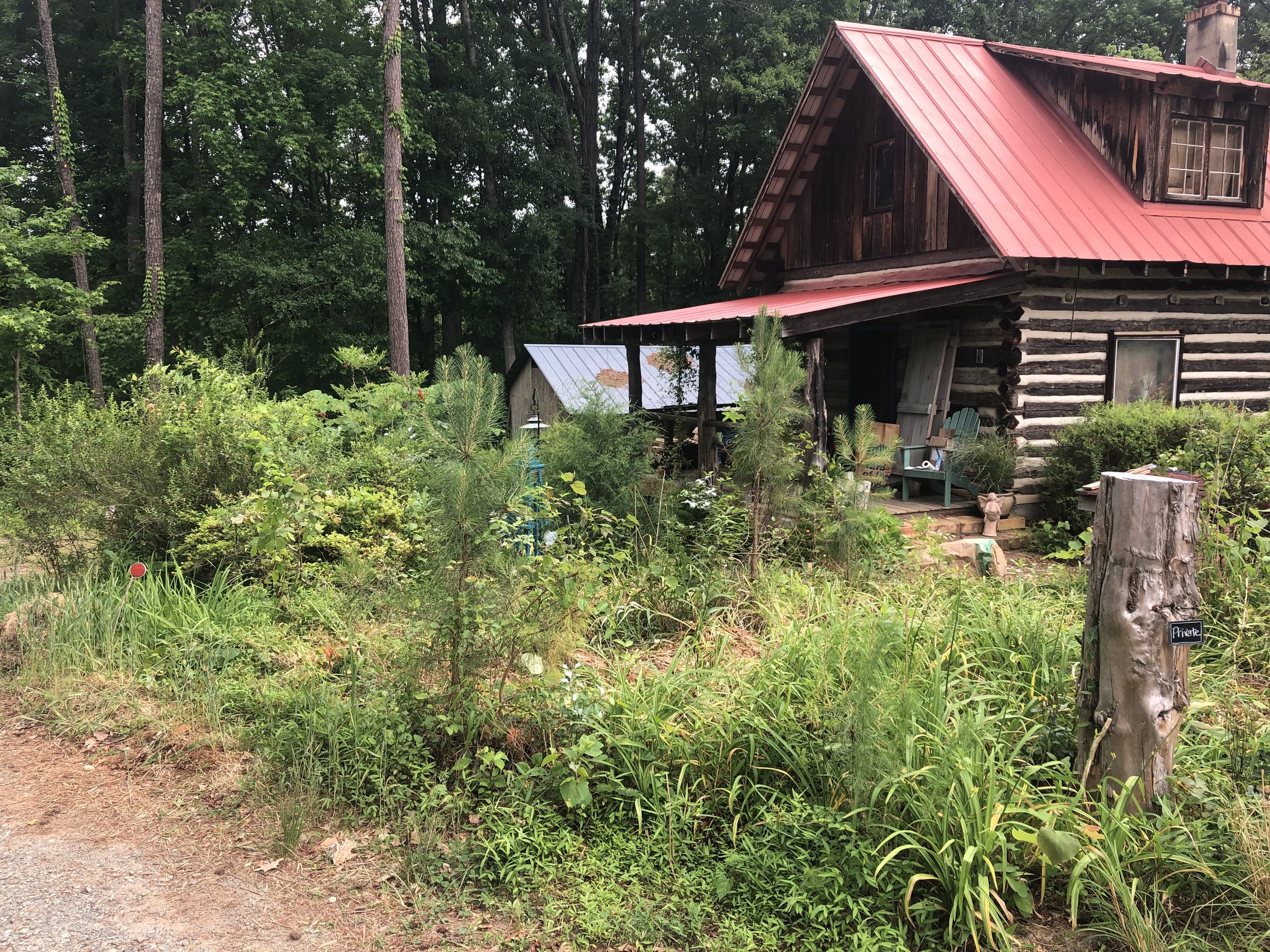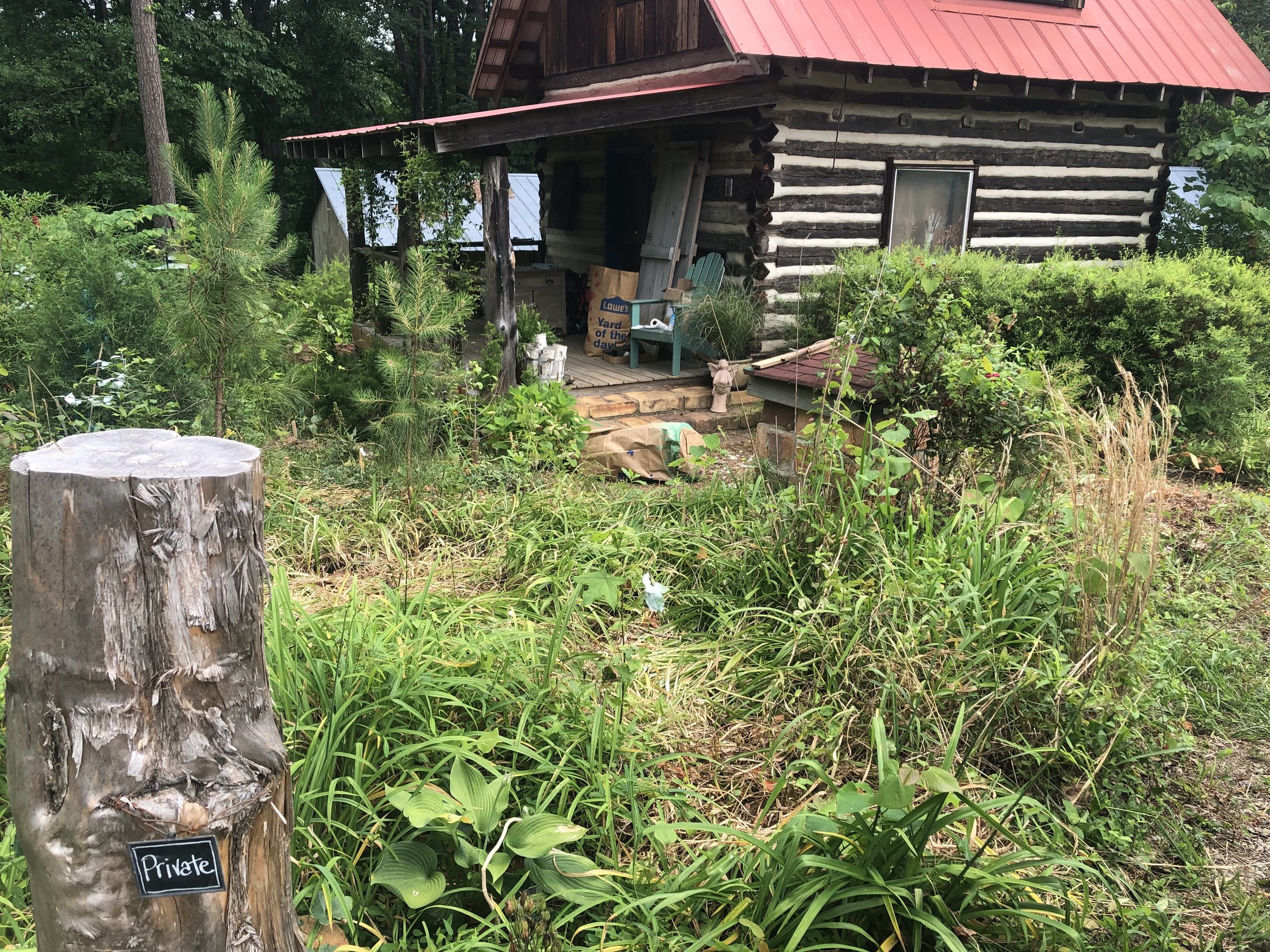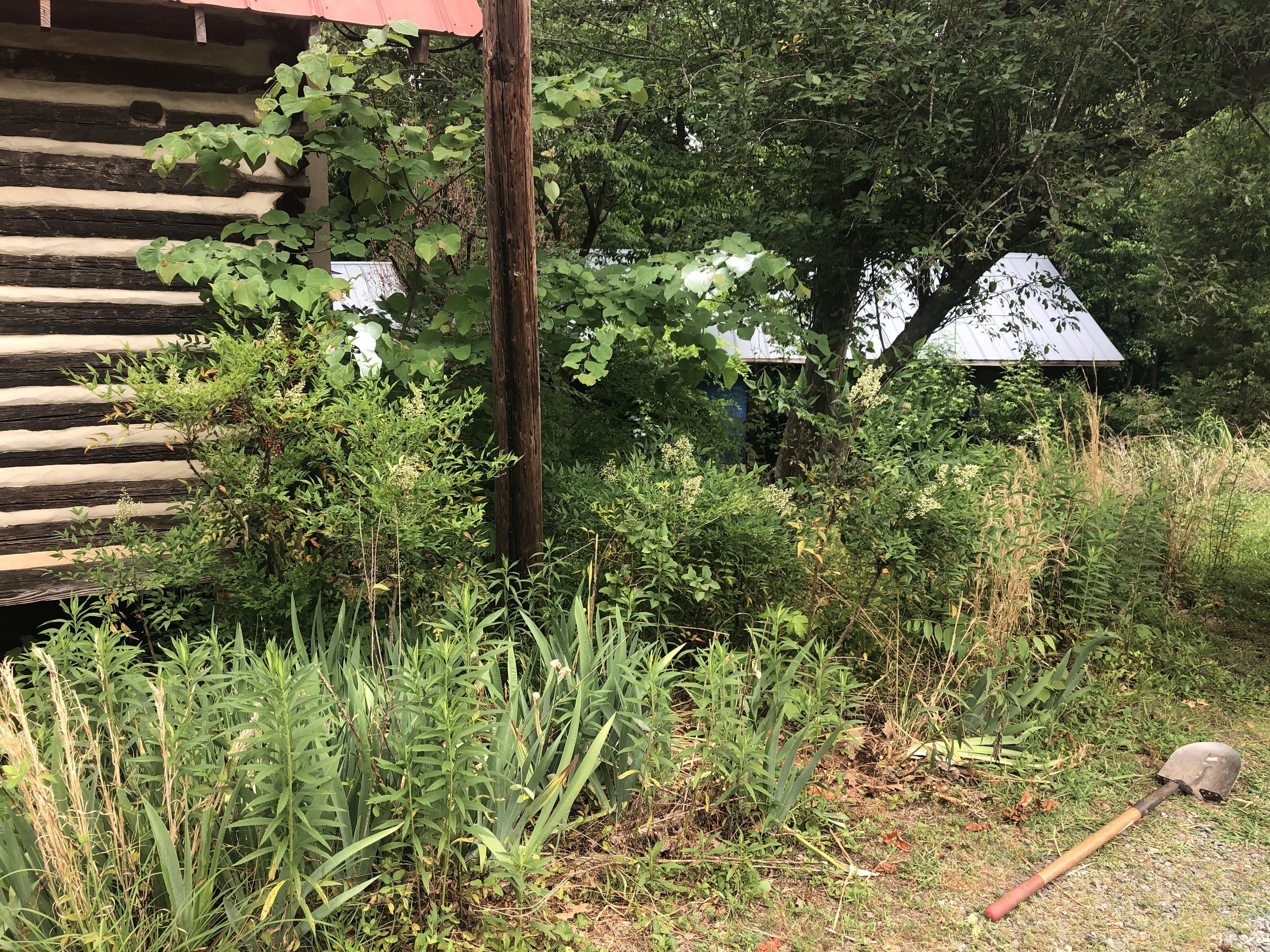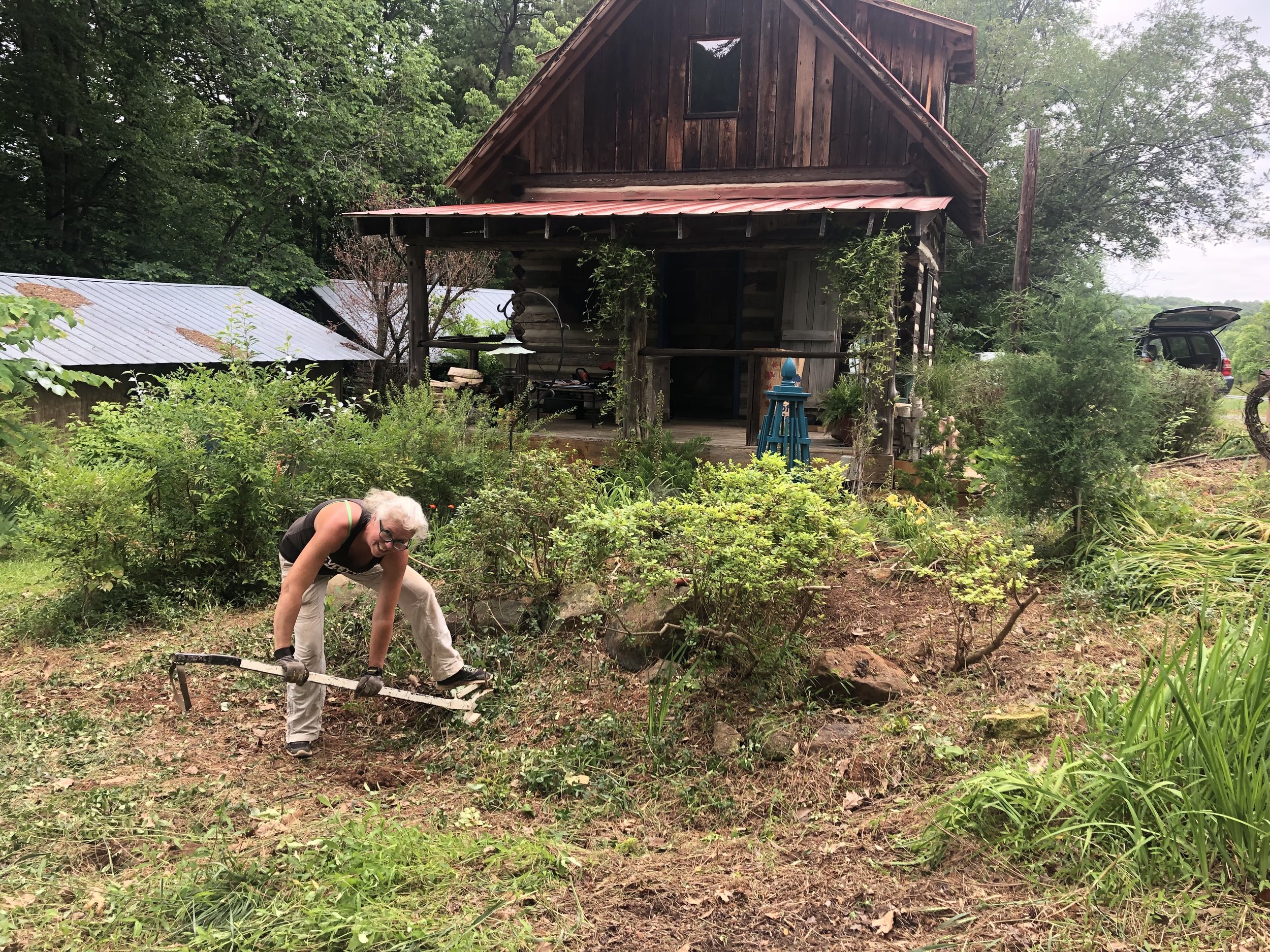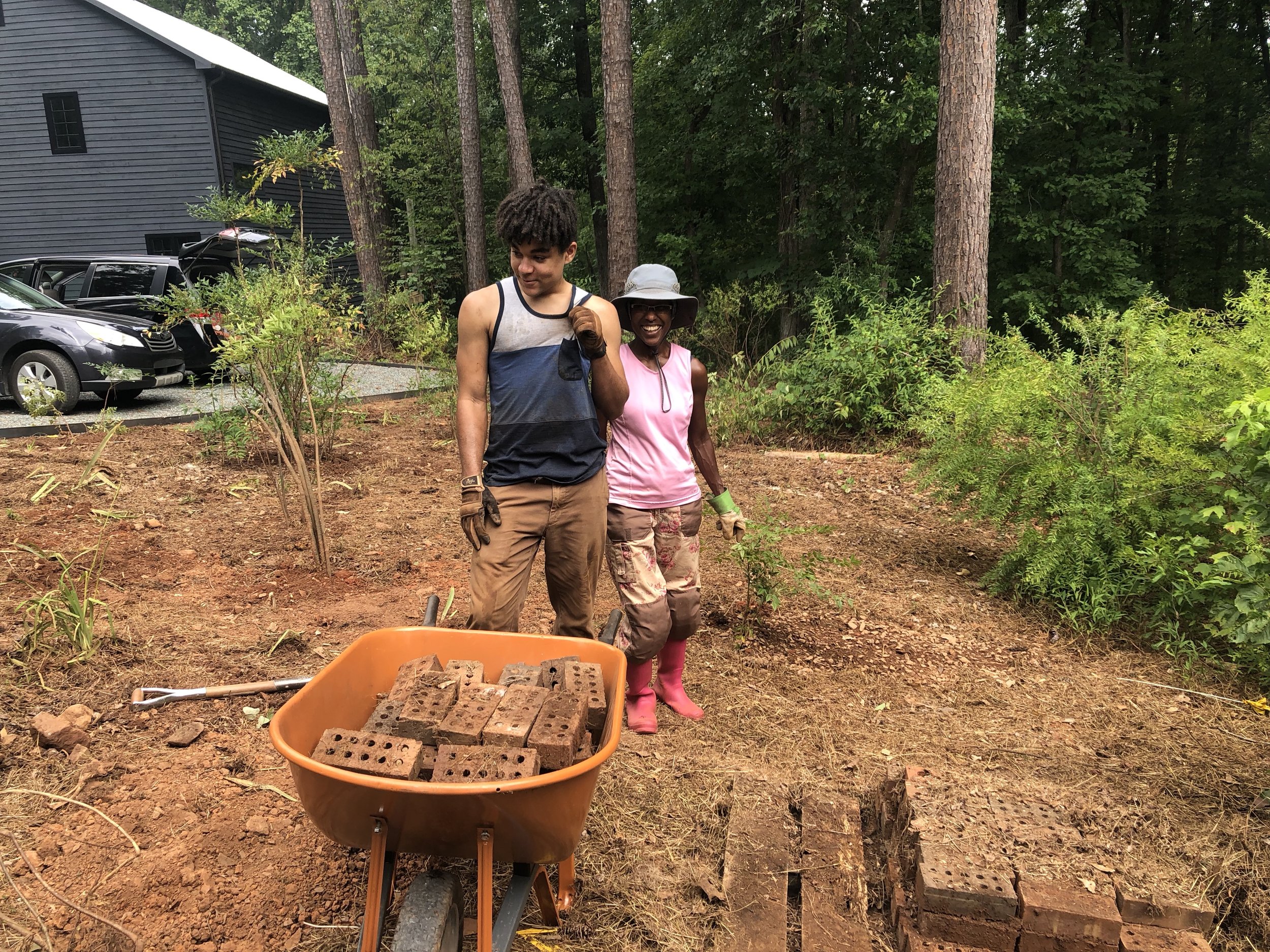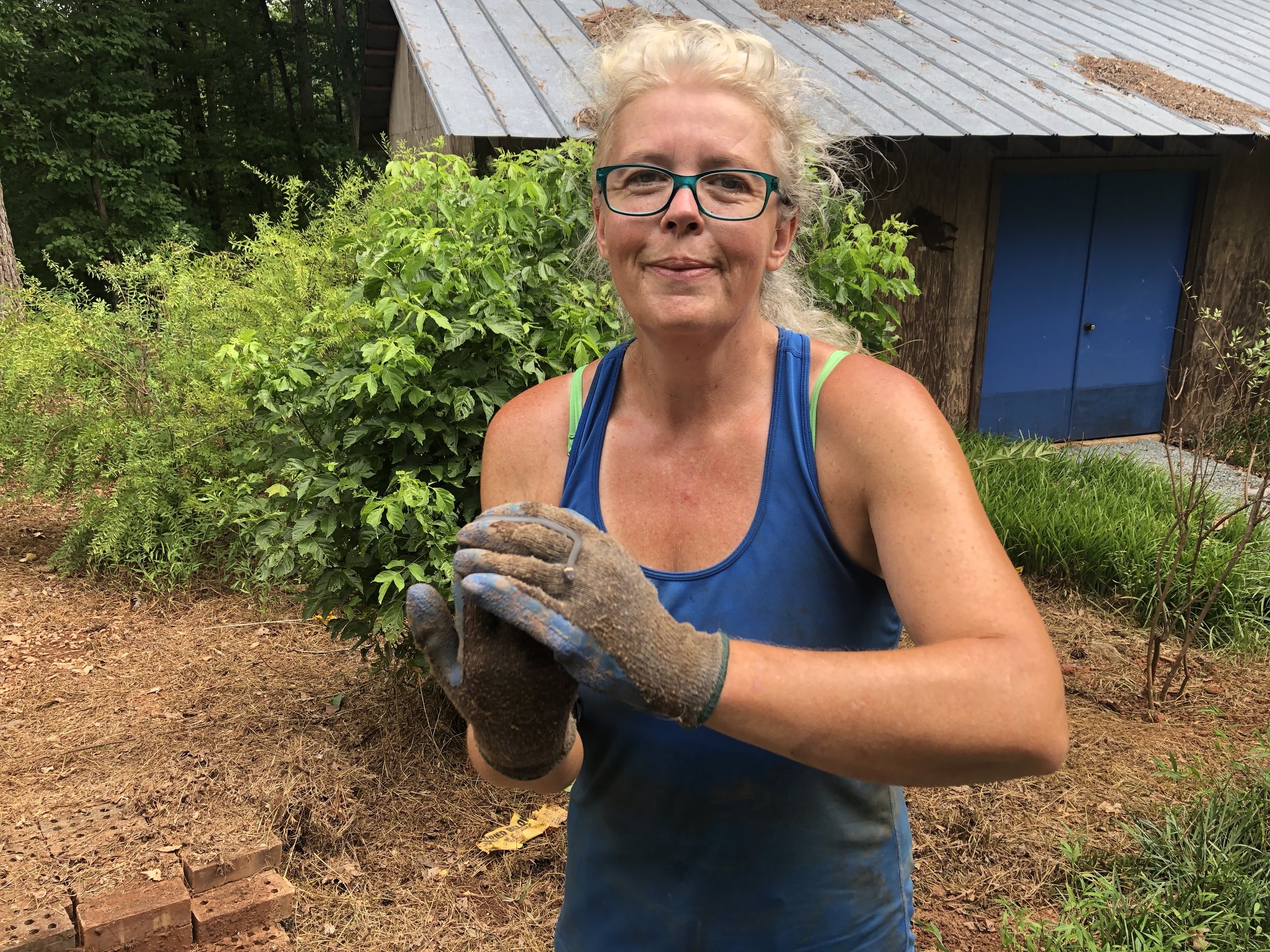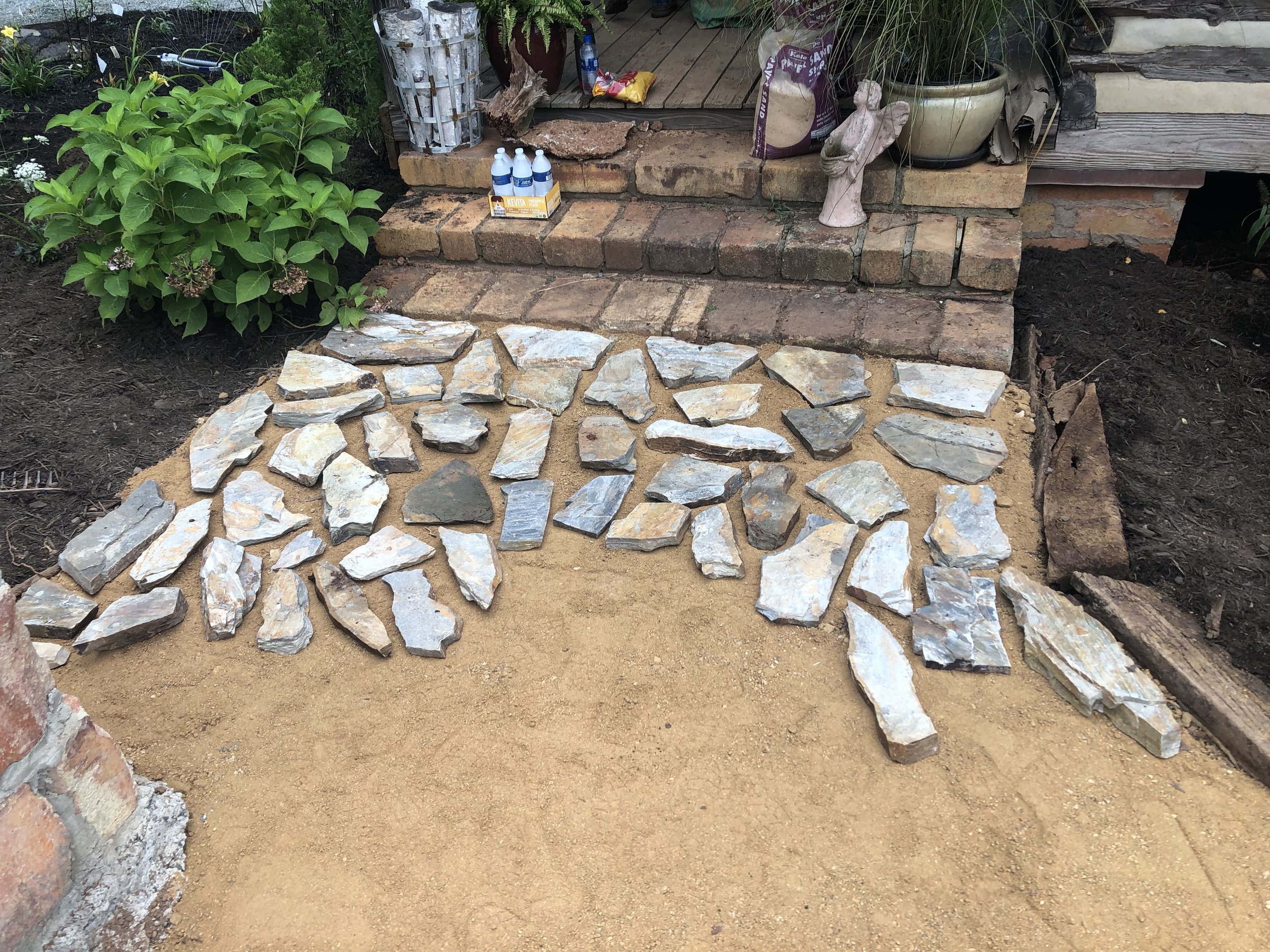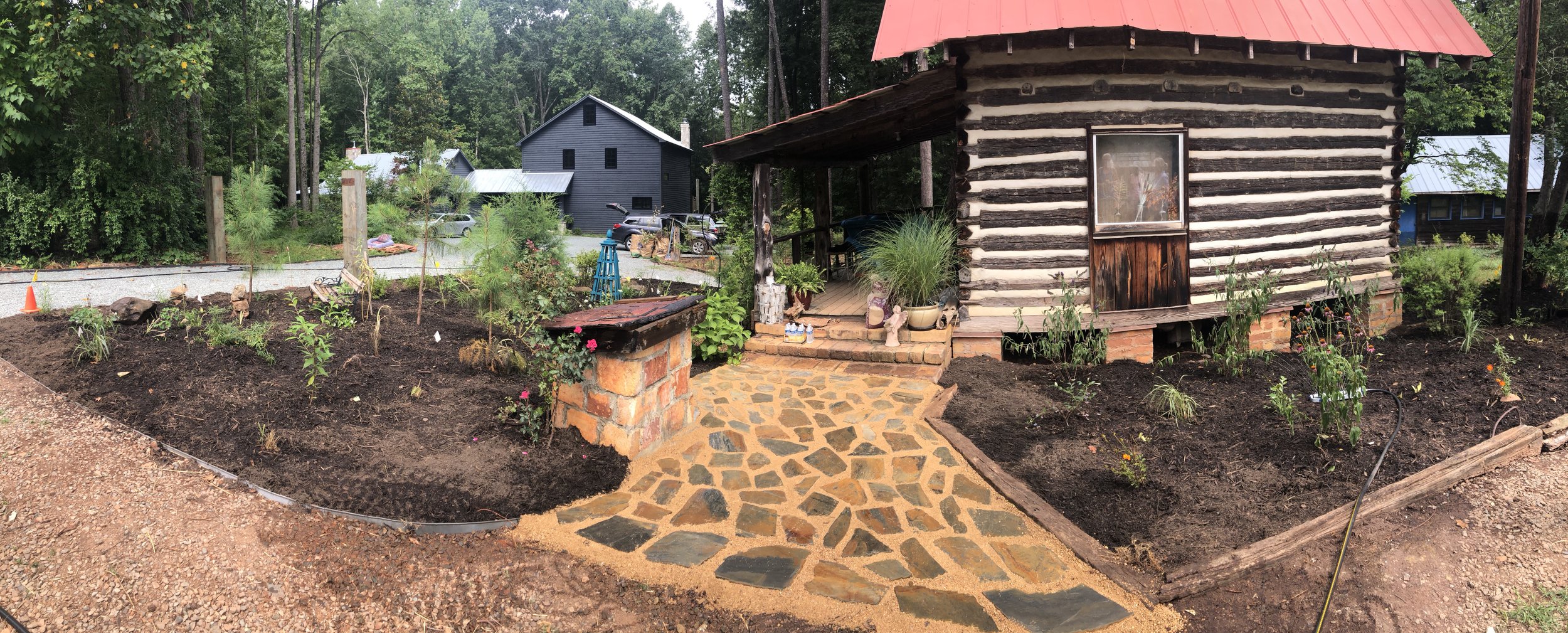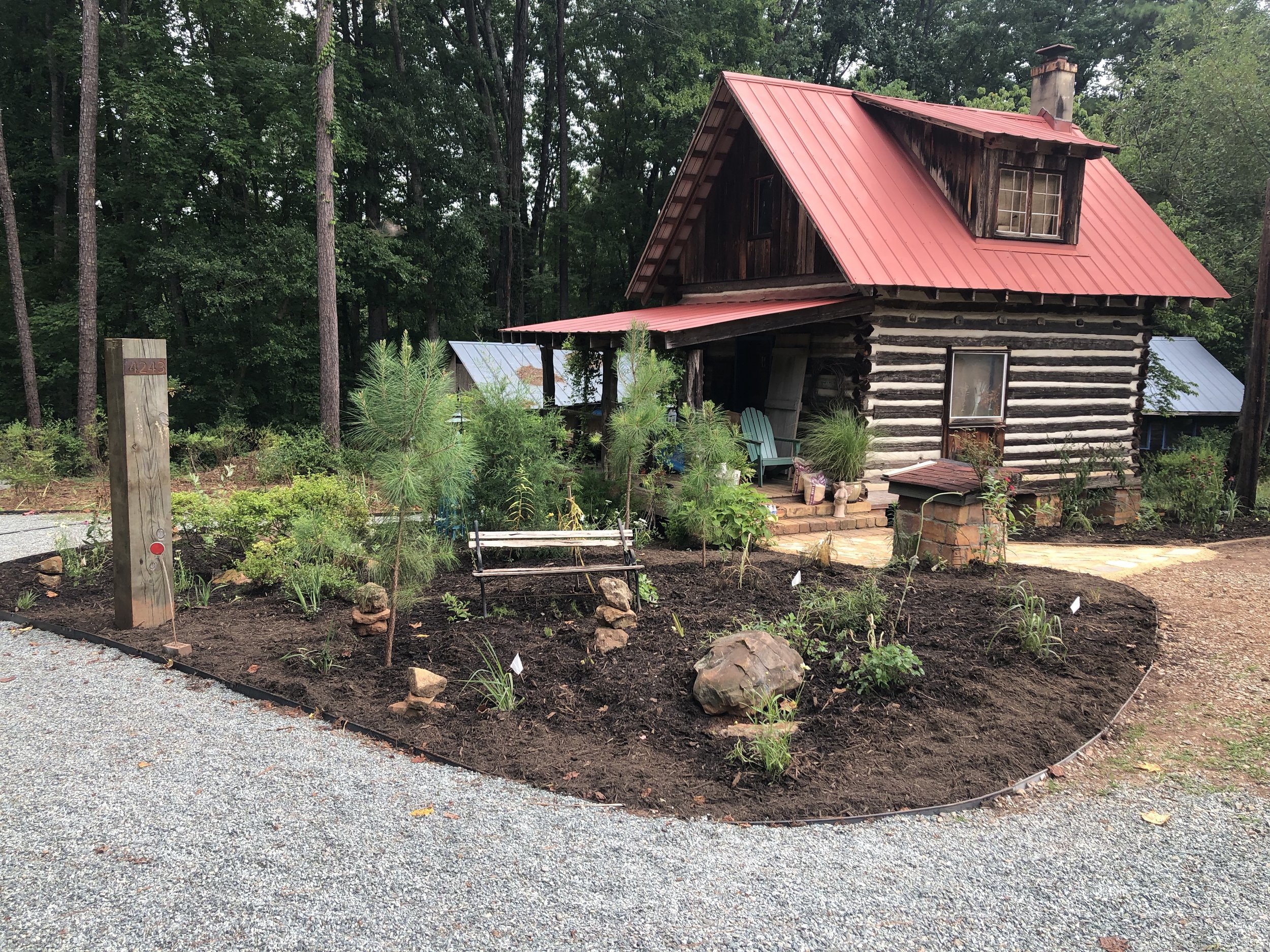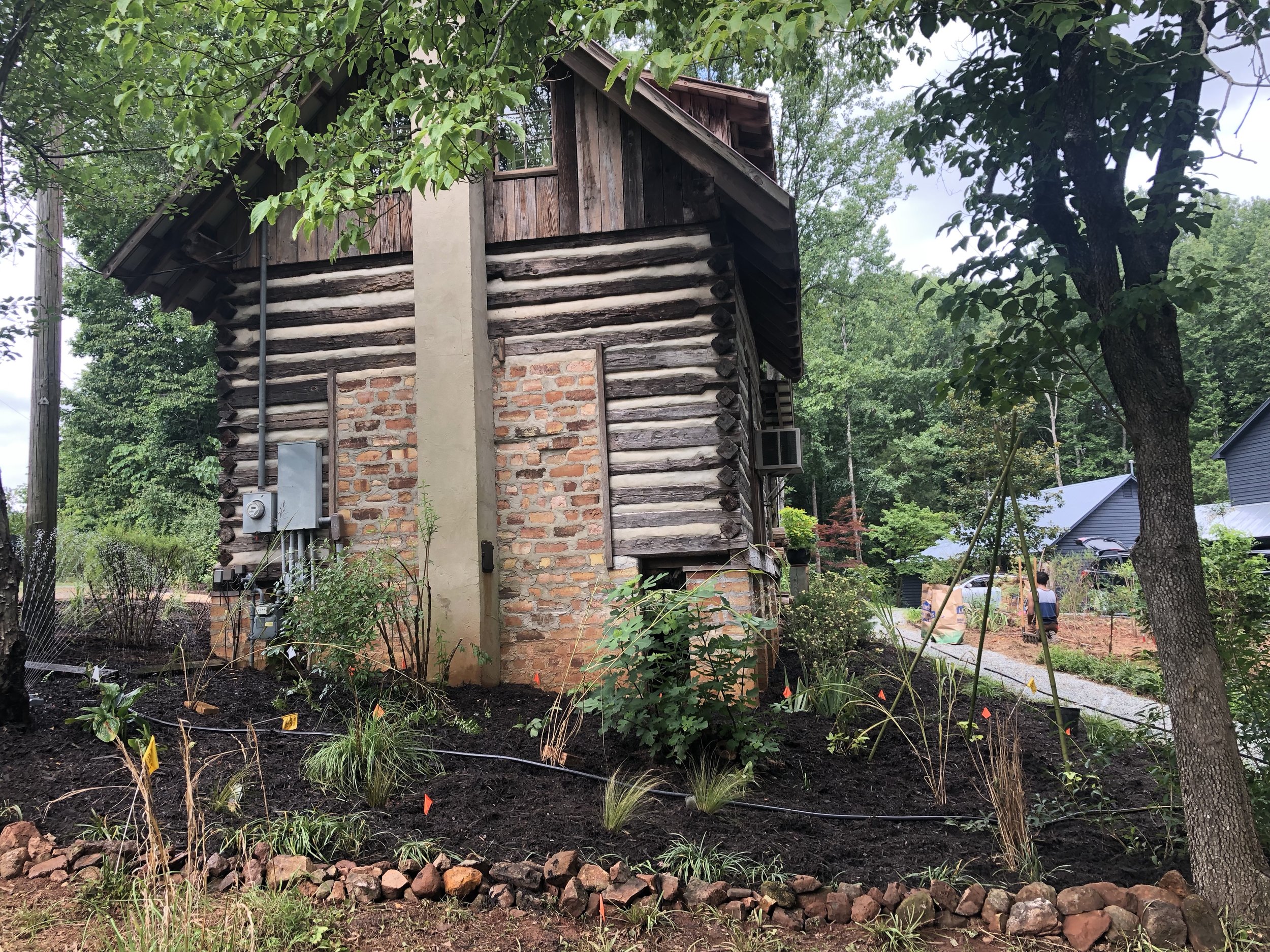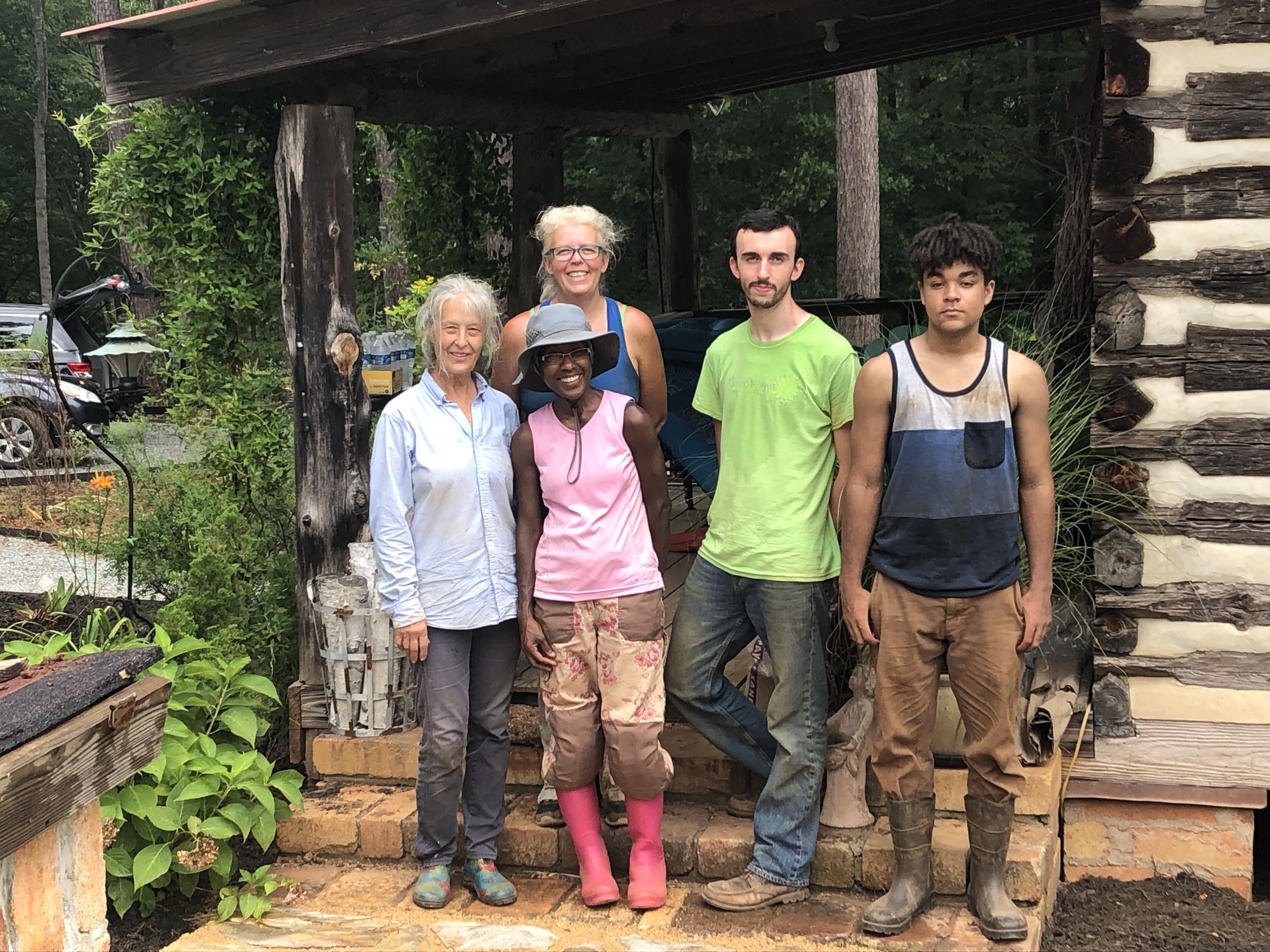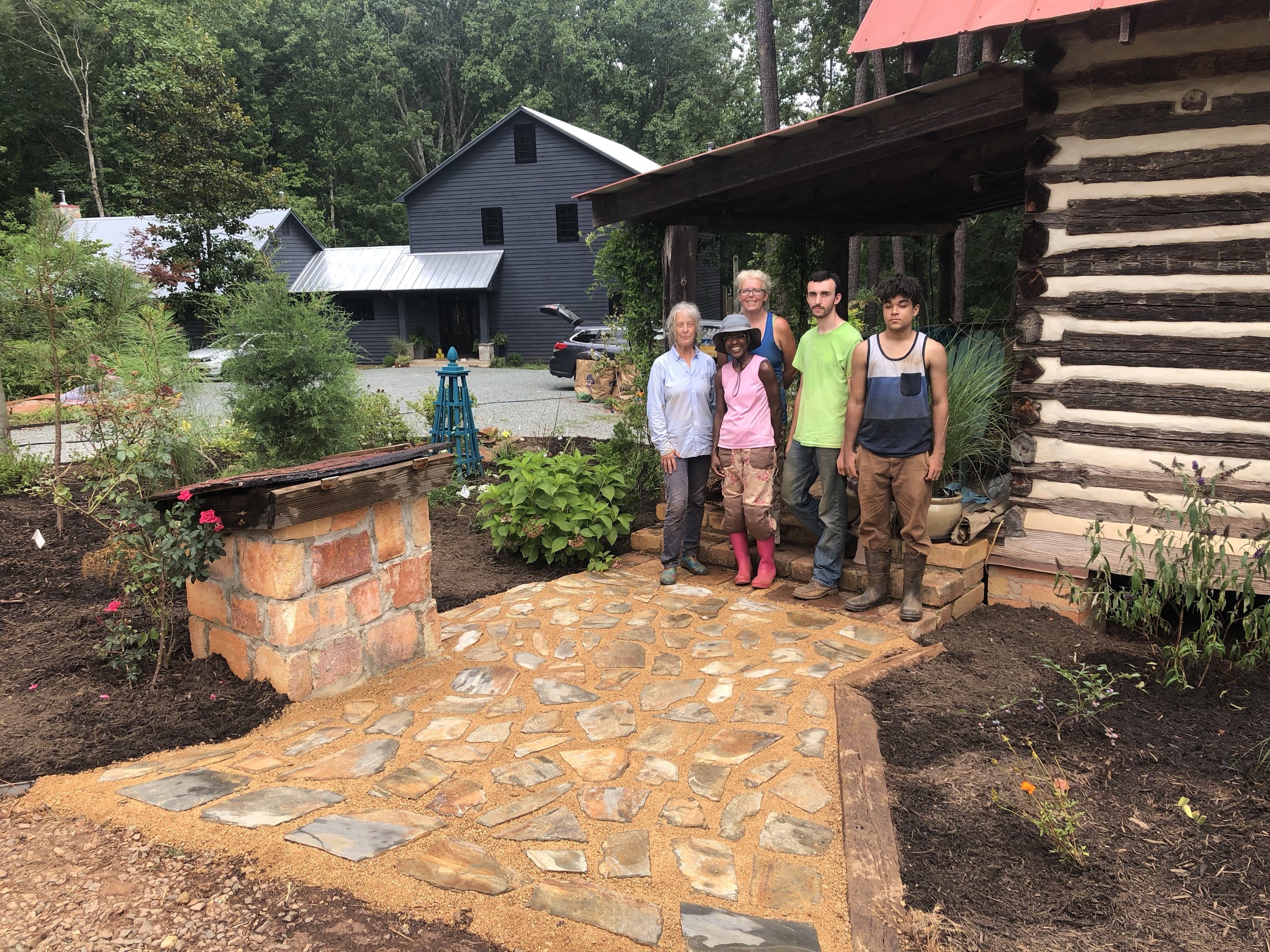Dare To Dream
At Birch Meadow, we dream of a future where everyone has at least a little fresh food growing in their yard and local ecosystems are healthy. The ability to go out into your yard to pick something and eat it right there gives a deep sense of satisfaction and contentment. More than that, people feel safer and more prosperous on an unconscious level when they know that food is growing nearby. We can help you with four different types of garden. Each individually will improve the health of your yard and local ecosystem and will bring you moments of delight every time you spend time in it. Any two or more types of garden together will work in concert with one another to improve the health, abundance, and charm of the others.
Victory Gardens
During times of crisis, people all over the world have turned to Victory Gardens as a means of safeguarding access to fresh healthy foods. Victory Gardens are vegetable gardens planted anywhere empty space is available. During WW II, these small gardens cared for by individuals in their own yards and communities in shared spaces produced between 9 and 10 million tons of food in the United States alone. Never underestimate the production power of a small piece of land! We can help you start and maintain a vegetable garden that will provide you with healthy food, physical activity and a true sense of accomplishment every time you harvest and eat what it provides. Click here for a local planting guide.
Rain Gardens
A rain garden is basically a low spot dug to receive runoff from your roof, driveway, and/or sloping yard. These low spots are filled with plants that like to have wet feet, but can also withstand dry spells. When it rains, the garden fills with water that slowly dissipates over the course of 24 to 72 hours once the rain stops. The quick drainage prevents mosquitoes from breeding. Rain gardens filter runoff pollution and decrease flooding by holding water long enough for it to drain into the local groundwater reserve. The slow percolation conserves water in your yard without you needing to bother with rain barrels and hoses. They protect rivers and streams from huge amounts of runoff during storm events which makes flooding less likely and keeps our waterways cleaner. They also help keep pest insects in check by providing appropriate habitat for birds and beneficial insects. They are very hardy and can survive drought seasons as well as rainy seasons. They are beautiful and full of activity! Butterflies and birds visit regularly and put on a beautiful year round show. In fact, rain gardens are so delightful and provide so much benefit to you, local wildlife, and stormwater systems, that we recommend everyone have at least one on their property!
Rain Gardens - No Small Task!
Literally - They Will Do You In!
Let Us Perfect Your Area
Dig It Just Right
Add Perfect Soil Mix
And Proper Drainage
Some Artistic Flair
And Add Gorgeous Plants!
Bird and Pollinator Gardens
Most people have heard of pollinator gardens and know that they provide nectar for pollinators, but did you know that they also provide homes and food for many birds and other beneficial insects that eat pest insects? Nitrogen-fixing plants in pollinator gardens also work with mycelium below ground to increase nitrogen levels for other plants nearby. Planting a pollinator garden in your yard will make your yard more beautiful and boost the health and productivity of other plants in your yard for years to come. Like rain gardens, the constant flow of insect and bird visitors in a bird and pollinator garden is a joy to watch.
Fruit and Nut Bushes and Trees
If you like the idea of growing food in your yard and also like the idea of trying new things, why not plant bushes and trees that are both beautiful and produce something to eat. While the traditional apple, pear, and peach trees can be difficult to grow and maintain, there are many varieties of fruit and nut trees that will grow and produce easily in our area. Set up a consultation, and we will be happy to help you choose what is right for you. Your landscaping can be both beautiful and provide food for you and/or local wildlife.
Moss Gardens
Do you have an area in your yard that doesn't get much sun, always seems a little damp, and won't grow grass? If yes, you've got the perfect spot for a moss garden. Growing moss takes a little patience, but the effects are beautiful and can be a very practical solution for some types of problem areas.












